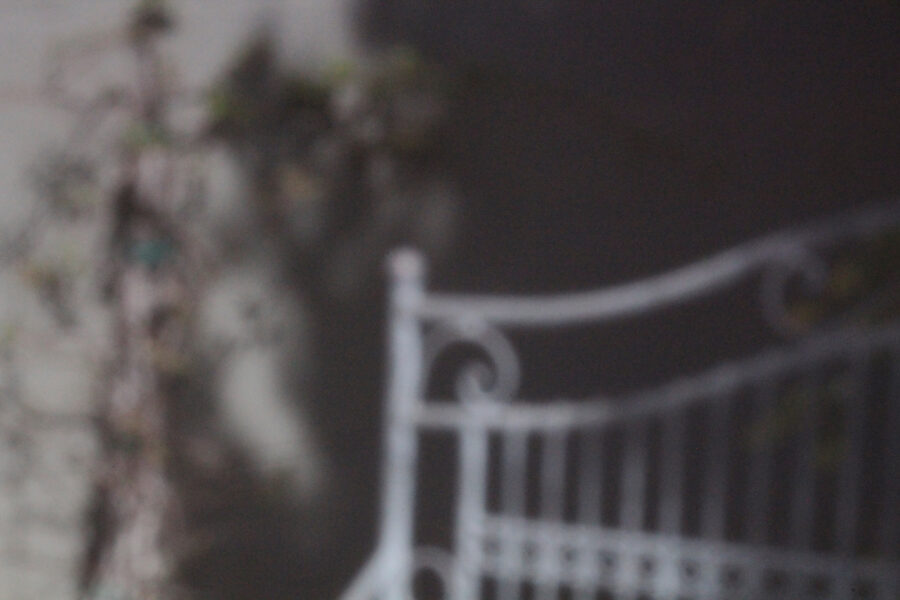I have almost no real memories left of my mother. She’s been gone exactly half my life. Like water passing over a stone year after year, the edges of her existence have become soft and hard to grab hold of. Sometimes I close my eyes and try to will a memory into being. I pick an event or a period in time and ask my brain to call it forward. Like a Google search. But nothing new ever shows up. Just the same fuzzy pictures where my mother is out of focus, or lost in the background, or missing entirely.
What’s left of her now comes to me through other senses: the sound of the squeaky spring and click of the latch of our side screen door as I arrive home from school. This moment–arriving home–was ever important. Here, putting down my book bag and taking off my shoes, I would listen for her. Seek out an audible clue as to how she was doing–if she was cooking dinner, watching television, painting or, as was often the case, praying. The latter she would do on her knees next to the living room sofa, channeling ancient tongues I didn’t understand, transporting herself far and away from the reality of her daily routine, which, of course, included me.
Growing up, the tension of me versus God was constant. He always won our arm wrestle for her attention. The formidable Father, Son, and Holy Spirit. My nemesis. Her savior. And, perhaps, a surrogate for the absent males in her life: for her own father who left when she was still a toddler, whose lack of presence resulted in years spent in an orphanage following her mother’s death; or maybe for the husband who buried himself in work while she struggled to raise five children. All I know is that I couldn’t compete with that trio of men who were eternally there for her–ready to soothe, forgive, and shepherd away her pain. It makes me wonder if our rivalry is what caused my feminism to spark and smolder deep in my belly.
Unlike my mother, memories of my father remain sharp. A natural storyteller, he regaled us with facts about a life full of great plot twists. If I asked questions, he willingly filled in the gaps, spreading mortar between bricks and constructing a history for me that otherwise wasn’t available. When he died, I felt that I knew him and understood the composition of his life. By contrast, I knew almost nothing about my mother. She was inherently mysterious and mystical, always hovering just out of reach. It might have been that her spiritual awakening (taking place before I was born) necessitated that she bury the past. Or maybe she preferred that my father occupy the foreground, maybe she couldn’t access her voice. Whatever the reason, by the time I arrived on this earth, all that came before had been swept away by her salvation and its promise of everlasting life. The stories she offered me were of redemption. Not of the nooks and crannies and humanness–the parts that I needed to hear–of her life.
All these years later, I haven’t stopped longing for her. I ache for snapshots of us that aren’t colored by religion. But memory hangs onto repetition, and patterns of thought, and well-worn grooves. Igniting dormant synapses–if even possible–takes patience and a willingness to unpack the past, venture into cordoned-off territory. It would be easier, I’m sure, to let her go; to be satisfied with the half-drawn sketch of her life. But I can’t just yet. I still want to connect the dots and discover the whole.
I do realize that these fifty anecdotes might be as much an effort to ensure that my children know me as they are for me to understand this stage of life. Who knows what memories they’ll choose to hold on to, which images will imprint as the defining experiences of their childhood. Maybe their version of me at 50 is of someone banging away at their computer, mumbling words out loud, frantically writing fragments of sentences on scraps of paper. Of someone preoccupied, not unlike my own mother, by their search for meaning. Maybe this effort is a security measure. Evidence that my distraction had purpose. And that throughout they were ever on my mind.







